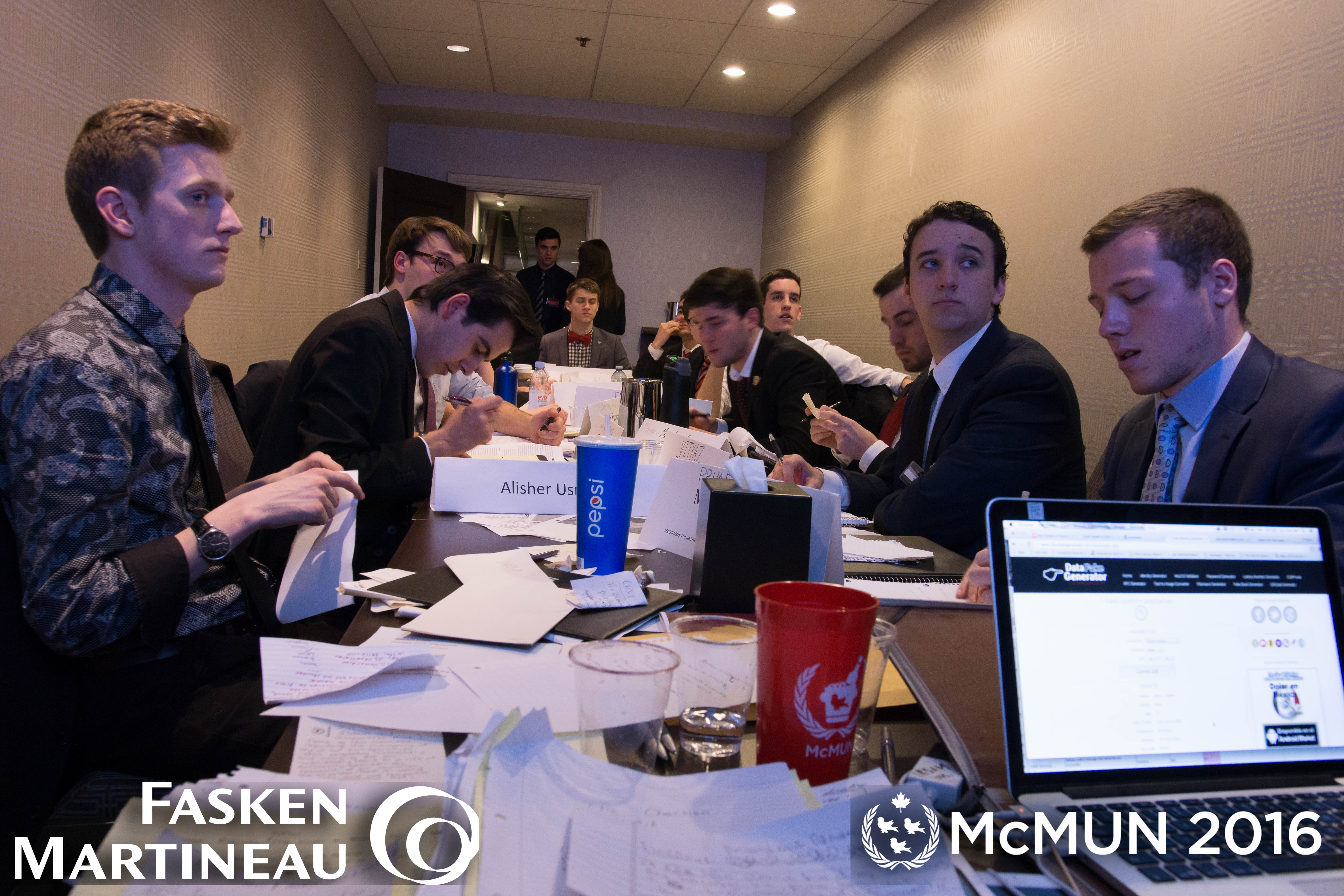The Moscow Theatre Crisis: a 2016 perspective

The committee addressing the Moscow Theatre Shooting Crisis held an enticing and fast-paced debate regarding government action in recovering over 800 Russian civilians from a hostage situation in Moscow. The committee presented directives that worked to ensure the safety of the hostages and their retrieval while maintaining Russia’s international integrity.
Dealing with the terrorist group showed to be a challenging event, especially as circumstances took a drastic turn after it came to light that the Minister of Interior, Boris Gryzlov, was found responsible for facilitating the murder of a female hostage and her two sons. Immediate action was taken by the committee to remove the Minister from his position, and prevent further harm to innocent civilians. A further crisis was reported some days into the conference as an unknown source named “The Coming Out Party” published astounding information, accusing the Moscow police of disguising agents as Chechen fighters and claiming that these were responsible for the “vile acts that took the lives of innocent nationals and foreigners alike in the theater”.
To add to the chaos, President Vladimir Putin’s legitimacy was questioned following the ensuing chaos, and there was increasingly widespread agreement that Putin’s logistical committee was thoroughly corrupt. Rumors arose of betrayal and negligence of their duty to ensure the safety of the lives of the hostages and of the people of Moscow.
Vladimir Putin’s legitimacy was questioned following the ensuing chaos, and there was increasingly widespread agreement that Putin’s logistical committee was thoroughly corrupt. Rumors arose of betrayal and negligence of their duty to ensure the safety of the lives of the hostages and of the people of Moscow.
The committee did successfully pass a directive known as “The Chechen Ballet”, which outlined a plan to carry out a joint task force composed of security personnel, to be executed by the Ministries of Interior, Defense, Foreign Affairs as well as the FSB and the Vityaz. Their modus operandi would be to shut down power upon entering the building, to secure as many hostages as possible and to eliminate or arrest terrorists while simultaneously working to minimize collateral as effectively as possible. Ultimately, “The Chechen Ballet” was a success, although 100 hostage lives were lost in the event.
The progression of events during the three-day conference was demonstrative of the delicate balance a committee needs to maintain when dealing with issues of terrorism, international prestige and power struggle from with in. They further highlighted the difficulties in recognizing the difference between terrorists and civilians for both government and society. It showed that the acknowledgment of the tensions between Chechens and Russians was imperative to move beyond these divisions. Empathy had to be exercised before legislation or force could be used, as these tools risked to further these cleavages. A delegate poignantly reminded the committee of the notion of “Rossiyskaya Federatsiya”, translated from Russian as “The Russian Federation”. The significance of the official name of the country is in its conception of Russia as a multinational state, a state that the Chechens were also a part of. Its usage emphasized the need to recognize the importance of the safety and self-preservation of the peoples of Russia to install a durable peace. Additionally, it reminded delegates that national leaders could only hope to maintain legitimacy by listening to and serving their constituents, a lesson that one hopes to see come to fruition in the near future.
Photo credits to McMUN/Philip Nguyen-Powanda
